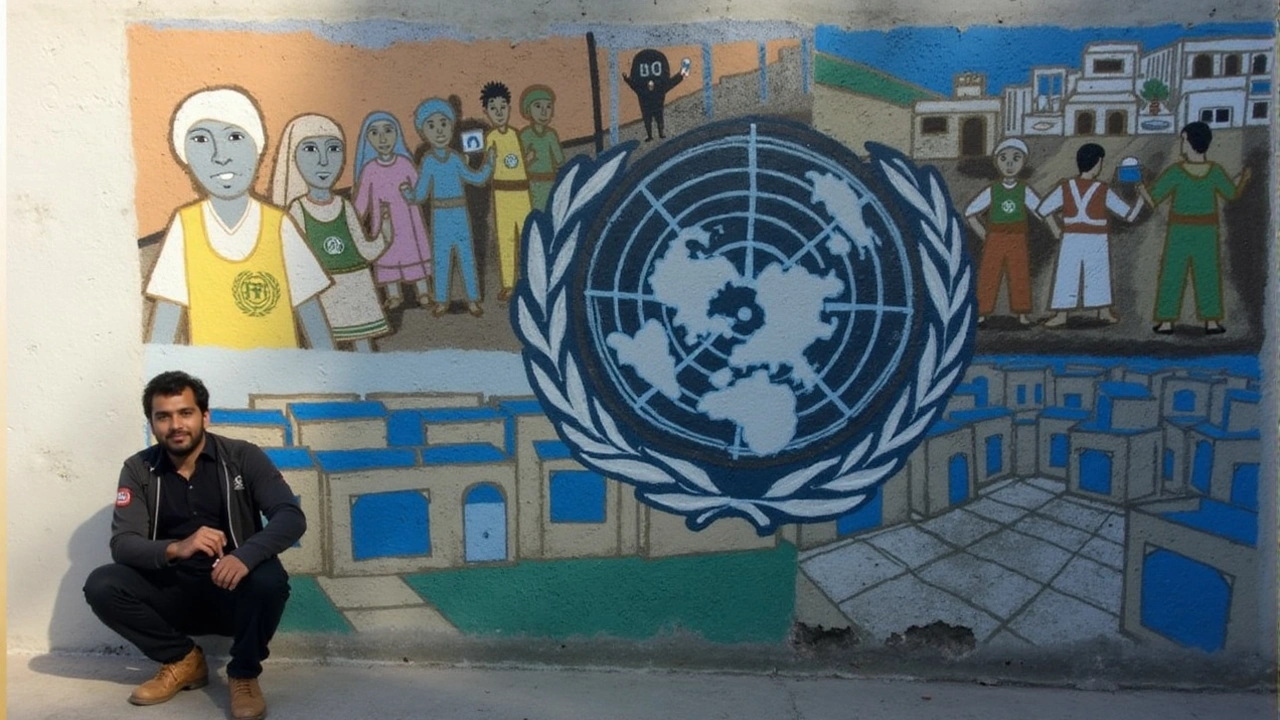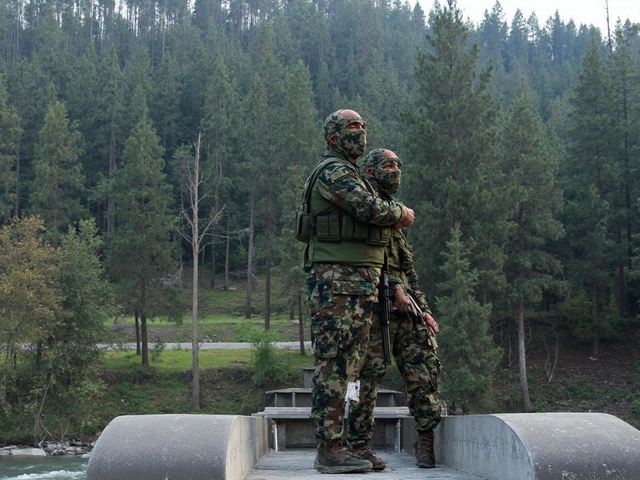Israel's Controversial Legislation
In a bold move that has drawn widespread attention and criticism, Israel's Parliament has passed a law banning the operations of the United Nations Relief and Works Agency (UNRWA) for Palestine Refugees in the Near East. This decision, which was backed by an overwhelming majority of 92 to 10 votes, has set the stage for a significant shift in how humanitarian aid is delivered to Palestinians. This change is especially pertinent to those residing in the Gaza Strip, a region heavily reliant on external assistance for basic needs. The ban, slated to take effect in a mere three months, is seen by many international observers as a potential harbinger of a humanitarian crisis, given UNRWA's long-standing role in providing aid and basic services in the area.
International Reactions and Concerns
International reactions to the legislation have been swift and overwhelmingly critical. Volker Türk, the UN's Human Rights chief, has voiced grave concerns about the ban's implications. Türk highlighted that without UNRWA's involvement, the delivery of essential services such as food distribution, healthcare, and education could grind to a halt, impacting most of Gaza's population. The significance of this is underscored by the fact that nearly 25% of UNRWA staff are employed in healthcare roles, collectively handling over six million medical consultations each year. Tedros Adhanom Ghebreyesus, the head of the World Health Organization (WHO), has also criticized the legislation, calling it 'intolerable' due to the severe health risks it poses to those dependent on UNRWA's network of support.
UN Secretary-General's Alarm
UN Secretary-General António Guterres has added his voice to the chorus of concern, repeatedly warning about the far-reaching disruptions the legislation could cause to UNRWA's operations, which currently serve more than two million Palestinians in Gaza alone. Guterres has hinted at the possibility of lobbying the UN General Assembly for action against Israel's unilateral decision, stressing the need for a unified diplomatic response to address the potentially devastating humanitarian fallout.
Israel's Justification for the Ban
Israel, however, stands firm in its decision. Prime Minister Benjamin Netanyahu has argued that the ban is necessary to hold UNRWA accountable for allegedly harboring individuals involved in terrorist activities. He has suggested that alternative mechanisms to deliver humanitarian aid will be implemented, aiming to balance these needs with national security. Despite these assurances, skeptics remain doubtful about the feasibility of such a plan, given the complexity of the logistics involved and the current geopolitical climate.

Global Political Fallout
The international political ramifications of this move have extended beyond humanitarian concerns. Key allies like the United States and the United Kingdom have expressed apprehensions. They have emphasized how the ban could exacerbate the ongoing humanitarian crisis, which is already dire following a decision by several Western nations to suspend funding to UNRWA amid allegations against some of its staff. While some nations have reneged on this funding suspension, American financial support remains in limbo, frozen until at least March 2025. Notably, UNRWA has stressed that its engagement with various militant factions, including Hamas, is strictly for the facilitation of aid, a claim that continues to fuel controversy.
Impact on Vulnerable Populations
For many families in the Gaza Strip, UNRWA is a lifeline that provides essential food aid and healthcare services they cannot otherwise access. The organization's role has become even more critical amidst the ongoing conflict and deteriorating economic conditions. UNICEF has issued a dire warning about the catastrophic impacts that the absence of UNRWA could have on children, emphasizing the profound stakes regarding their health and future prospects. James Elder, a UNICEF spokesperson, strongly contended that the absence of UNRWA could lead to the collapse of the humanitarian system in Gaza, with devastating outcomes for the most vulnerable.
International Law and Humanitarian Obligations
The ongoing military conflict, marked by high casualty rates and frequent bombardments, has accentuated criticisms of Israel's actions under international law. The humanitarian community points to the critical shortages of food and medical supplies, which have been compounded by obstructions to aid deliveries. Despite these challenges, UNRWA strives to continue its operations, navigating diplomatic channels and local politics to provide for the Palestinians they serve.
The Road Ahead
The future of this legislation remains uncertain amid robust opposition from international human rights organizations. These groups call for respect for international humanitarian laws, urging diplomatic interventions to ease Palestinian suffering. Observers note that the situation remains fluid, dramatically illustrating how humanitarian imperatives find themselves caught in the crossfire of broader geopolitical dynamics. The hope is that reason and compassion will prevail to avoid a worsening humanitarian crisis in the region.






I just cried reading this. How can we let children go hungry because of politics? UNRWA is literally keeping people alive. I can't believe we're even having this debate.
My heart is with the moms in Gaza who are choosing between feeding their kids or buying medicine. This isn't policy-it's cruelty dressed up as security.
Israel has every right to protect its citizens. UNRWA has been a Hamas front for decades. The fact that you all cry about 'humanitarian aid' while ignoring the rockets fired from schools and hospitals is disgusting. Stop pretending this is about food-it's about terror.
So like... UNRWA gets banned, and suddenly everyone's like 'oh no the babies will starve' but nobody asks why the same agency has been paying salaries to people who plant bombs? 🤔
It's like if your local food bank was run by the mafia and you're mad when they get audited.
There’s a difference between holding an institution accountable and collapsing an entire humanitarian system. We’re talking about 2 million people who rely on this for water, food, and vaccines. If you want to cut ties with corrupt elements, do it surgically-fire the bad actors, audit the books, restructure. Don’t torch the whole building because one room smells bad.
And honestly? The fact that we’re even debating this shows how far we’ve drifted from seeing people as people.
The notion that UNRWA is a neutral humanitarian actor is a myth perpetuated by Western guilt and institutional inertia. It was created as a political tool to perpetuate the refugee narrative, not resolve it. Israel’s decision is not only justified-it is overdue.
Lmao so we're gonna replace a 70-year-old aid network that feeds 2 million people with... what? A Google Form? 'Please fill out your hunger level and wait 3 weeks for a ration card from the IDF'?
Y'all really think this is gonna end well?
It’s worth noting that UNRWA’s mandate was renewed by the UN General Assembly every year since 1949. Its structure is unique-not a UN agency in the traditional sense, but one tied directly to a specific population. The question isn’t whether aid should continue, but whether the current mechanism can be reformed without causing mass disruption. The answer, from every expert I’ve read, is yes-but only if done collaboratively, not unilaterally.
i think we need to think about the kids first 🙏 maybe there is a way to fix unrwa without hurting the people who need it most? like maybe fire the bad people and keep the nurses and teachers? i dont know just a thought
UNRWA is broken. But killing it won’t fix Gaza.
UNRWA is a Mossad front. They're planting fake aid trucks to lure Hamas fighters into the open. You think the IDF doesn't know where the food goes? They're letting it flow so they can track the network. This ban? A distraction. The real war is in the data.
I hate this so much 😭 why do they do this to innocent people?? They are not even trying to help!!! I am so angry I could scream!!
The structural flaws within UNRWA are undeniable-its funding model is unsustainable, its hiring practices lack transparency, and its curriculum has been repeatedly flagged for incitement. However, the abrupt termination of its operations, without a viable, immediately deployable alternative, constitutes a reckless violation of the principle of non-refoulement under international humanitarian law.
Let me explain something to my American friends: UNRWA isn’t just ‘aid.’ For Palestinians, it’s identity. It’s schools where kids learn their history, clinics where their mothers give birth, rations that keep their grandparents alive. You can’t just delete an institution that’s woven into a people’s survival for 75 years and expect them to just... move on.
It’s like taking away a family’s last photo album and saying, ‘We’ll give you a digital copy someday.’
This is why we need real leadership. Not politics. Not fear. Just humanity.
The moral calculus here is not merely logistical-it is ontological. The erasure of UNRWA’s institutional presence constitutes a performative negation of the Palestinian subject’s right to exist as a collective entity within the international legal order. The West’s complicity in this epistemic violence is not incidental-it is constitutive of the colonial architecture that continues to structure global humanitarianism.
I get why Israel is mad. But this feels like burning down the hospital because the janitor was a thief. There’s gotta be a better way.
Oh look, the same people who cried over Ukraine’s aid are now pretending to care about Gaza. How convenient. The hypocrisy is almost poetic.
UNRWA is a psyop by the deep state to keep the palestinian issue alive so they can control the middle east and make the oil prices go up. The whole thing is a scam. They dont even care about the people. They just want you to hate israel so youll support their agenda